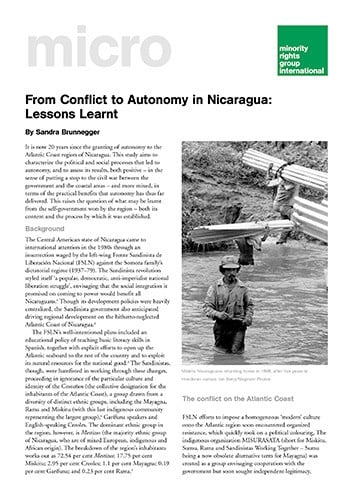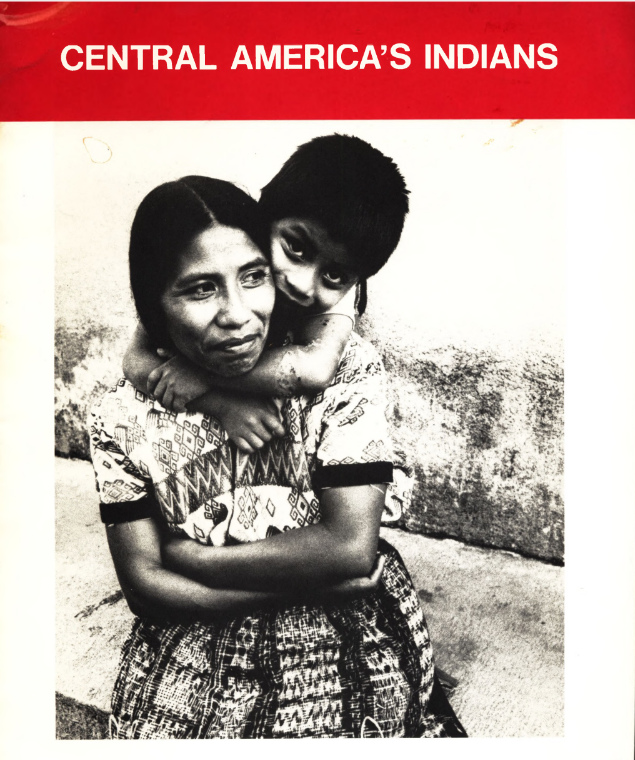Until very recently Mayangna were commonly known as Sumu. This name, which is derogatory, was applied to a number of the separate but linguistically related Caribbean coastal indigenous peoples who refused to be absorbed into the then expanding Miskitu kingdom. In recent years, the group has rejected the name Sumu, much preferring to be called Mayangna.
In a leading case before the Inter-American Court of Human Rights (IACtHR), namely Mayangna (Sumo) Awas Tingni Community v. Nicaragua (2001), the Awas Tingni community (one of numerous Mayangna communities inhabiting the isolated Atlantic coast region of Nicaragua) challenged Nicaragua’s failure to demarcate their communal lands and the granting of a timber concession in an area belonging to the community without consulting them. Despite the fact the American Convention on Human Rights made no express reference to indigenous peoples nor to communal property, the Court, through what it itself described as ‘an evolutionary interpretation’, found that Article 21, until that point regarded as protecting a classic, individual private right to property, protected the right to property ‘in a sense which includes … the rights of members of the indigenous communities within the framework of communal property’.
This was a ground-breaking development. Yet, the reason why the Awas Tigni community had to take their case to the regional level was not because Nicaragua’s Constitution and legislation made no provision for indigenous peoples and their property rights. Indeed, Nicaragua’s 1995 Constitution contains several provisions on the country’s indigenous peoples, their communal form of land-ownership and their enjoyment of their natural resources. Instead, as found by the IACtHR, there was no established procedure for the titling of indigenous lands and therefore for making the constitutional and other legislative provisions effective in practice.
The case ended positively, albeit after a protracted struggle to ensure implementation. In December 2008, a ceremony was held where the Nicaraguan government granted the Awas Tigni community title to some 74,000 hectares.


